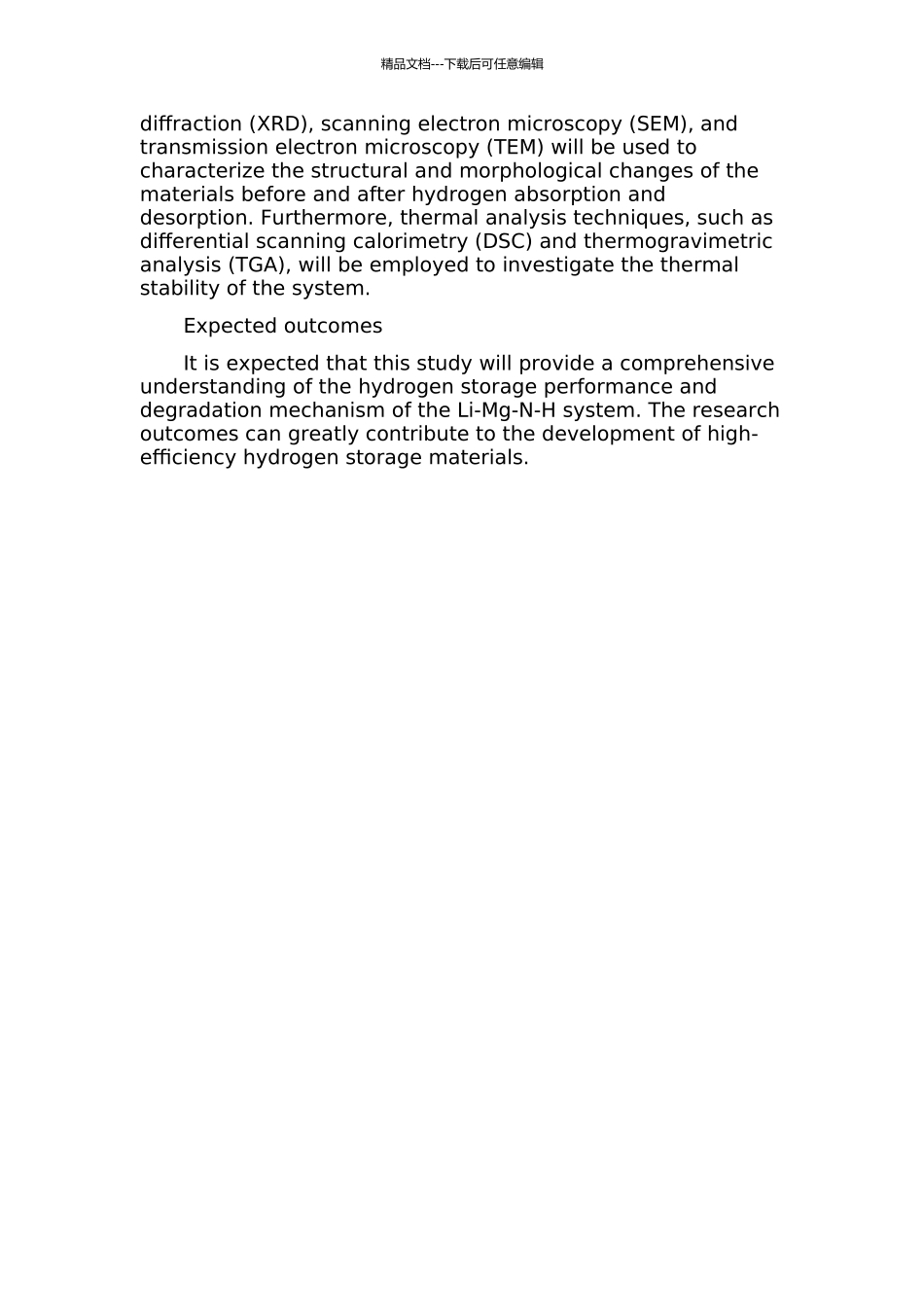精品文档---下载后可任意编辑Li-Mg-N-H 复合体系的储氢性能及其衰退机理的开题报告Keyword: Li-Mg-N-H system; hydrogen storage; performance; degradation mechanism.IntroductionWith the increasing demand for environmentally friendly energy, hydrogen has been widely recognized as an ideal alternative energy source due to its clean, renewable, and high-energy density characteristics. However, the traditional hydrogen storage methods still face many challenges, such as low storage capacity, safety issues and high cost, etc. Therefore, it is important to develop new high-efficiency hydrogen storage materials.The Li-Mg-N-H system has been considered as a promising candidate because of its high hydrogen storage capacity, low cost, and ease of preparation. However, the hydrogen absorption and desorption kinetics of the Li-Mg-N-H system are still poor, which limits its practical application. What's more, the thermal stability of the system is also an issue that needs to be addressed.ObjectivesThe main objectives of this study are:- To investigate the hydrogen storage performance of the Li-Mg-N-H system.- To explore the factors that affect the hydrogen sorption kinetic and thermodynamics of the system.- To understand the degradation mechanism of the Li-Mg-N-H system during the cycling of hydrogen absorption and desorption.MethodologyIn this study, the Li-Mg-N-H system will be synthesized by mechanical milling or ball milling. The hydrogen storage performance of the system will be evaluated by a Sievert's apparatus. The effects of temperature, pressure, and catalysts on the hydrogen sorption property will be examined. X-ray 精品文档---下载后可任意编辑diffraction (XRD), scanning electron microscopy (SEM), and transmission electron microscopy (TEM) will be used to characterize the structural and morphological changes of the materials before and after hydrogen absorption and desorption. Furthermore, thermal analysis techniques, such as differential scanning calorimetry (DSC) and thermogravimetric analysis (TGA), will be employed to investigate the thermal stability of the system.Expected outcomesIt is expected that this study will provide a comprehensive understanding of the hydrogen storage performance and degradation mechanism of the Li-Mg-N-H system. The research outcomes can greatly contribute to the development of high-efficiency hydrogen storage materials.

